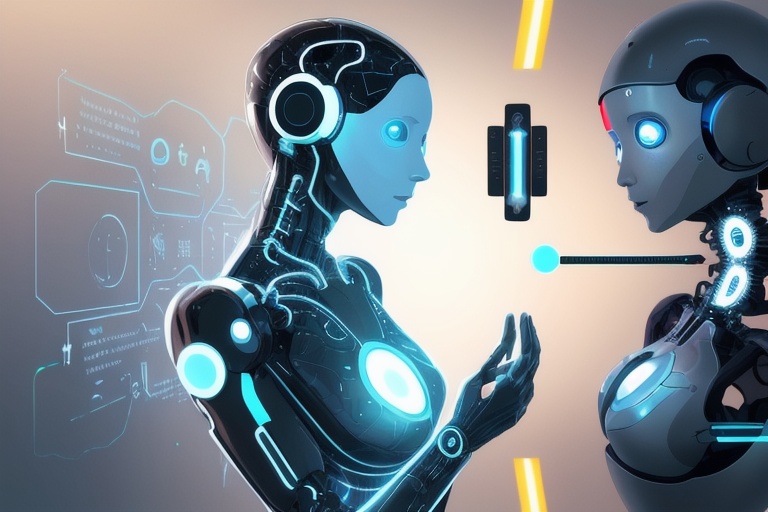Artificial intelligence (AI) serves as a game-changing technology that has already begun to alter the way we understand and harness information, analyze data, and make critical decisions. This innovative field stands at the forefront of a revolution in not just technological capabilities, but also societal functions and industry operations. Aimed at broadening comprehension and fostering awareness, this overview endeavors to clarify AI for individuals from various backgrounds—including policymakers, opinion leaders, and the general public interested in the intersection of technology and society.
Artificial intelligence (AI) serves as a game-changing technology that has already begun to alter the way we understand and harness information, analyze data, and make critical decisions. This innovative field stands at the forefront of a revolution in not just technological capabilities, but also societal functions and industry operations. Aimed at broadening comprehension and fostering awareness, this overview endeavors to clarify AI for individuals from various backgrounds—including policymakers, opinion leaders, and the general public interested in the intersection of technology and society.
Understanding the Impact of AI Across Industries
AI's diverse portfolio of applications is significantly influencing an array of sectors. In finance, machine learning algorithms are redefining risk assessment and fraud detection, leading to more secure and efficient financial transactions. National security initiatives are employing AI in cybersecurity and surveillance, enhancing the protection of critical infrastructure. The healthcare industry is experiencing a renaissance with AI-driven diagnostic tools, personalized treatment plans, and administrative automation. Transportation is undergoing a profound transformation with the development of autonomous vehicles, while smart cities are leveraging AI to optimize everything from traffic management to energy conservation.
These innovations are not without implications. As AI becomes more deeply embedded in our daily lives, we are compelled to grapple with pressing questions related to societal impact, economic concerns, and governance challenges. A thoughtful exploration of these questions is imperative to understand AI's role in shaping our future.
Unpacking AI-Driven Decision-Making
At the core of AI's transformative power is its unparalleled capability in decision-making processes. AI systems synthesize large volumes of information, identifying patterns and insights that might escape human analysis. This advanced data processing enables more nuanced and informed decisions, enhancing productivity and effectiveness across numerous industries. However, reliance on AI for critical decisions also introduces complexity surrounding accountability and oversight.
Navigating Challenges and Ethical Concerns
Amidst AI's advancements, we must not overlook the potential difficulties and ethical dilemmas that it may present. Ensuring equal and fair data access remains a hurdle, as does combating the inherent biases that can arise within AI algorithms. The ethical dimensions of AI, including the transparency of decision-making processes and the legal accountability for AI-driven actions, are critical considerations that require careful scrutiny.
Recommendations for a Responsible AI Future
To maximize AI's benefits and safeguard fundamental human values, we offer a set of actionable recommendations:
Promote Data Accessibility: Facilitate greater data sharing for researchers to advance AI development while maintaining privacy and security standards.
Increase Government Investment: Allocate more government funding to AI research to stimulate innovation and address societal challenges.
Foster Digital Literacy: Implement digital education and AI workforce development programs to prepare individuals for the evolving job landscape.
Establish Clear Regulations: Develop clear guidelines to address algorithmic bias, ensure transparency, and maintain accountability in AI systems.
Encourage International Collaboration: Promote global cooperation in AI governance to ensure consistent standards and practices worldwide.
Implementing these recommendations is essential for steering AI in a direction that benefits all members of society. By taking a proactive and inclusive approach, we can collectively navigate the intricate landscape of AI and create a future that sees AI working in concert with humankind.
In examining the vast potential of AI, we are led to a conclusion that is both optimistic and cautious. The promise held by AI is immense and manifests the ability to redefine our collective future. Yet, it is our responsibility to guide the evolution of AI with an eye toward ethical implications and societal welfare. Exploring AI with both enthusiasm and a sense of duty will enable us to craft a world where AI technologies amplify human potential and contribute positively to our existence.
Information for this article was gathered from the following source.




